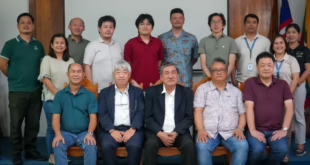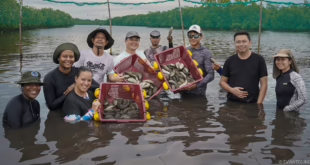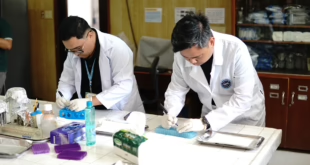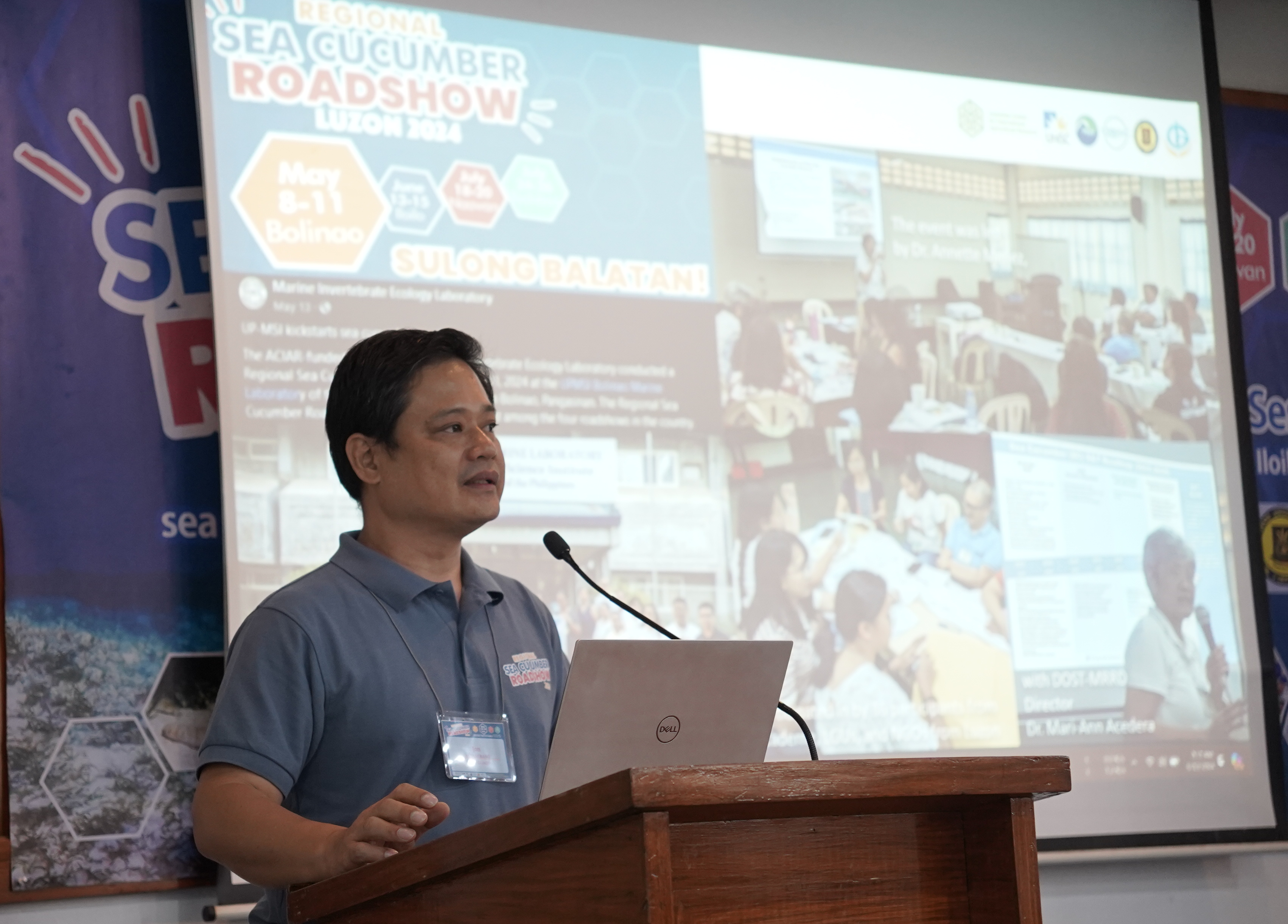 The Southeast Asian Fisheries Development Center/Aquaculture Department (SEAFDEC/AQD) hosted the Regional Sea Cucumber Roadshow 2024 West Visayas Session on 13–14 June 2024 at Tigbauan Main Station in Iloilo, Philippines.
The Southeast Asian Fisheries Development Center/Aquaculture Department (SEAFDEC/AQD) hosted the Regional Sea Cucumber Roadshow 2024 West Visayas Session on 13–14 June 2024 at Tigbauan Main Station in Iloilo, Philippines.
The two-day event, supported by the Australian Centre for International Agricultural Research (ACIAR), featured the latest advancements and best practices in sea cucumber production and research, mostly developed from ACIAR-funded projects from different nodes across the Philippines.
Attendees from various academic institutions, regional government agencies, and local government units hailed not only from Western Visayas (Panay, Guimaras, and Negros) but also from neighboring regions such as Cebu, Marinduque, and Palawan.
This was the second leg of the roadshow, following the first session held in Bolinao, Pangasinan, from 8 to 11 May 2024, hosted by the University of the Philippines-Marine Science Institute (UP-MSI).
SEAFDEC/AQD Chief Dan Baliao highlighted the significance of the event, stating, “This is a good opportunity to raise awareness about sea cucumbers among Filipinos and how to sustainably farm them, given their potential in international markets.”
Key lectures on the first day included topics on “Sea Cucumber Ecology, Fisheries, and Trade,” and “Current Knowledge & Practices – Hatchery, Nursery, Grow-out of Sandfish,” which were delivered by Dr. Jon Altamirano as Node Leader for West Visayas. Interesting talks from other project nodes leaders involved topics on “Integrated Systems, Cluster Production and Linkages” from Luzon by Dr. Marie Antonette Juinio–Meñez (UP-MSI). “Community-friendly Approaches from East Visayas” from East Visayas by Ms. Margarita dela Cruz (GDFI), and “DOST-NICER Program on Sea Cucumbers” from Mindanao by Dr. Wilfredo H. Uy (MSU-Naawan).
The second day featured workshops aimed at identifying sea cucumber status (resources, research, and projects) by area, identifying gaps and needs, and exploring potential collaborations. Participants were actively involved in asking questions, sharing thoughts, and engaging in discussions.
The event is part of an ACIAR-funded project on community-based sea cucumber production that aims to enhance the skills of sea cucumber farmers in aquaculture and resource management through research and community development in the Philippines (ACIAR: FIS-2016-122).
By adopting practical sea cucumber culture methods, coastal communities can generate new income opportunities and diversified livelihoods, particularly for women. By advancing sandfish culture technologies to support expansion to new sites and ensure stable market accessibility, the project aims to achieve significant ecological, economic, and social impacts across the Philippines.
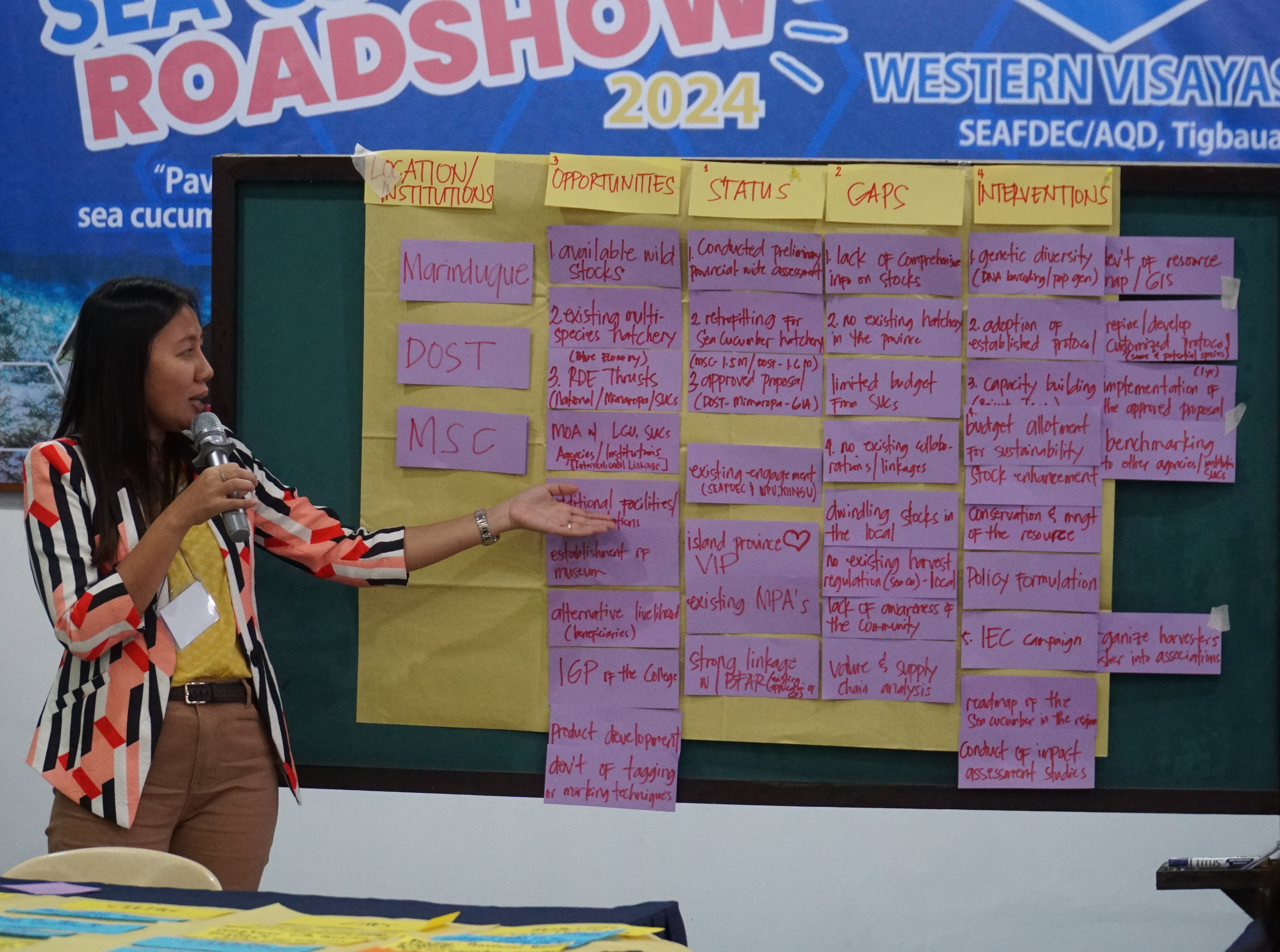
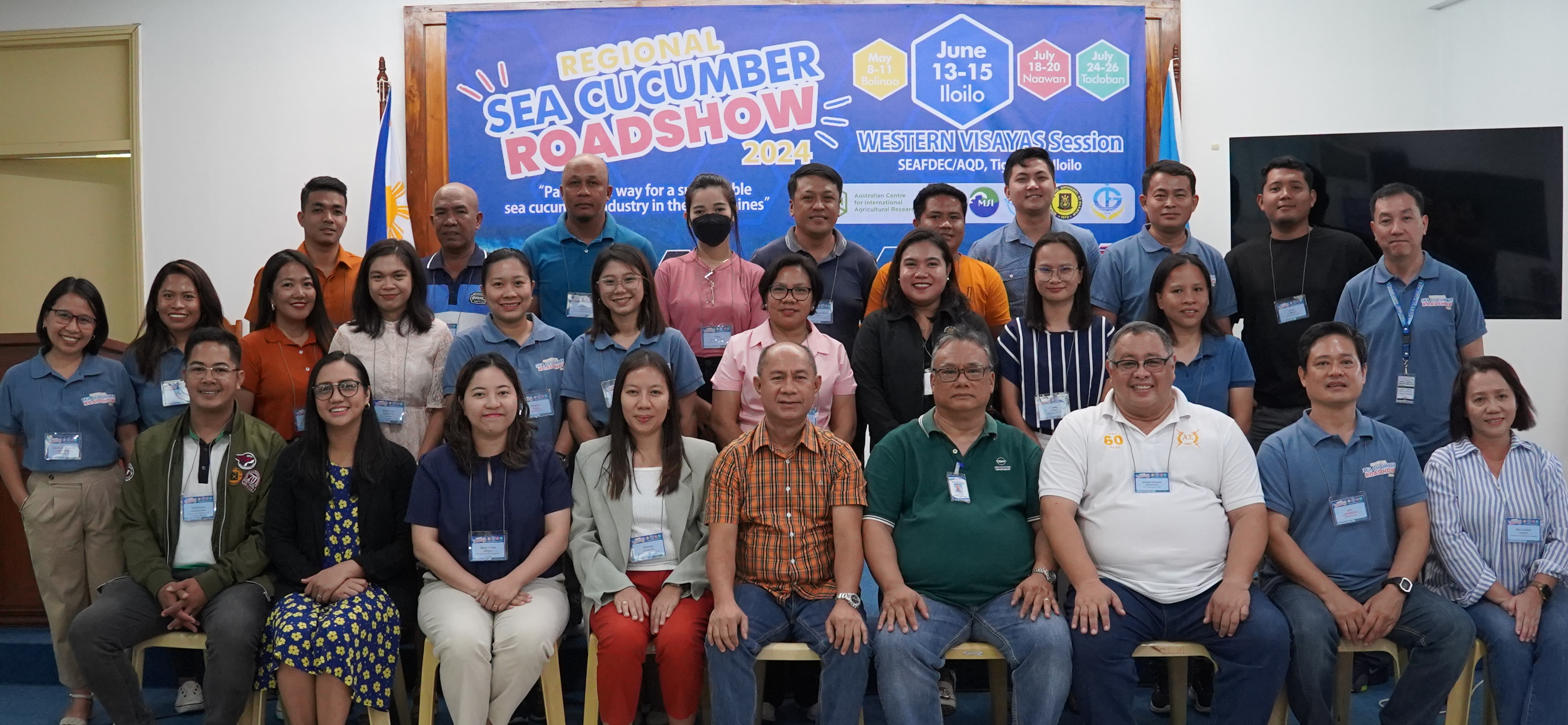
 SEAFDEC/AQD Southeast Asian Fisheries Development Center | Aquaculture Department
SEAFDEC/AQD Southeast Asian Fisheries Development Center | Aquaculture Department
